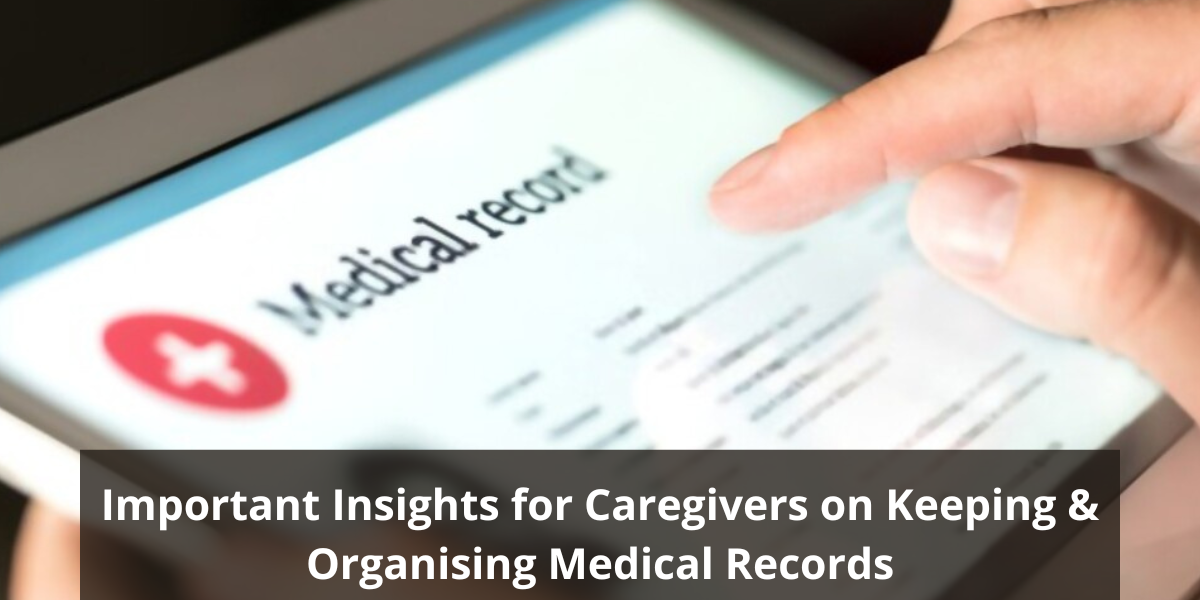As a caregiver, you would know how significant your role is in keeping and organizing medical records. You have to communicate with healthcare providers, schedule appointments, and manage medications. As a result, you have the responsibility to collect and maintain accurate medical records. These records can be invaluable when it comes to coordinating care, monitoring treatment progress, and detect potential problems. Here are some useful insights for you on keeping and organizing medical records of the residents:
1. Know the benefits of organizing medical records:
Here are some of the benefits of organizing the medical records of the residents:
- Easy access to info: You can easily find the information of a resident by organizing his/her medical records properly.
- Know the health needs: Organising the resident’s medical records can make you better understand his/her health history and needs.
- Easier transition: By organizing medical records, you can ensure that accurate and complete medication information is available at different stages of care. This is important when there’s a change in a care setting, service, or level of care.
2. Create a medical records binder:
Creating a medical binder is one of the simple ways to organize the residents’ medical information. Start with the personal health history including present medical conditions, known allergies, and treatment for those conditions. Also include hospitalization information such as date of admission, name of the hospital, and doctor’s name. Record all this information along with the medical history of the resident’s family and file it under a tab. Also, store information on medical tests such as:
- Laboratory results: It means results of blood and urine tests. It is important to save bloodwork results since they include information about blood count and blood electrolytes.
- Radiology results: It means results from tests such as CAT scans, MRI scans, X-rays, and ultrasound tests. Having these results handy gives the doctor a better idea about the resident health condition at the time of a visit.
- Cardiac tests: These include the results from the tests such as echocardiograms, EKGs, and tests for coronary artery disease, such as special heart imaging tests or treadmill tests.
Also, document the resident’s emergency contact information along with a copy of his/her legal documents. Create a separate binder for each resident and take this with you to each doctor’s appointment.
3. Keep a medication list:
It is also essential to include the list of past and current medications in the medical binder of every resident. Besides, document each medication that they are currently taking, such as the name of the drug, start date, dosage, and any side effects they have experienced. Also, include medications and supplements they take regularly.
4. Organise medical records with electronic MAR sheets:
Many care homes in the UK are adopting the digitization of health records. eMAR is a software that helps care homes in the digitalization of health records and does away with the traditional paper-based documentation of medical records. Besides the digitization of health records, there are many other benefits of using eMAR in care homes. Some of the benefits include:
- As a caregiver, you will have access to the resident’s medication information on the tips of your finger. This means at the time of administering medication, you don’t have to go through piles of papers.
- eMAR comes with an alert feature. It will send you an alert when the medicine is due. The alert has all the details: the name of the patient, the name and dosage of the medicine, and how it should be administered. This will ensure that there is no missed dosage.
- You can make extensive month-end audit reports with ease using eMAR without manually going through each and every paper.
To know more benefits of eMAR, check this useful read.







